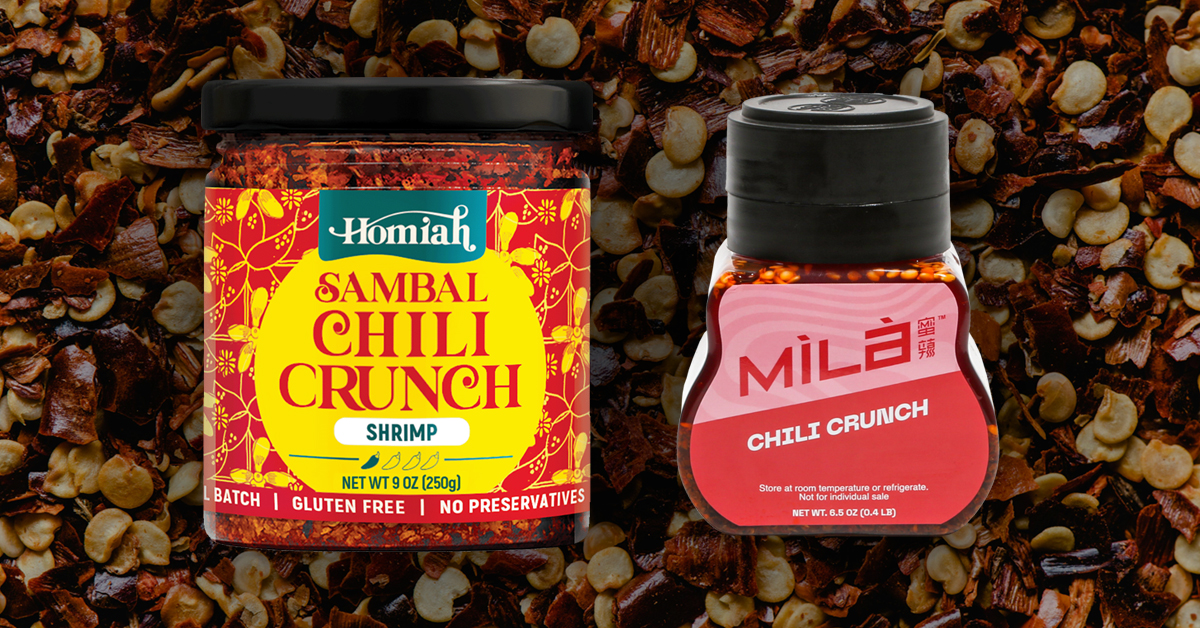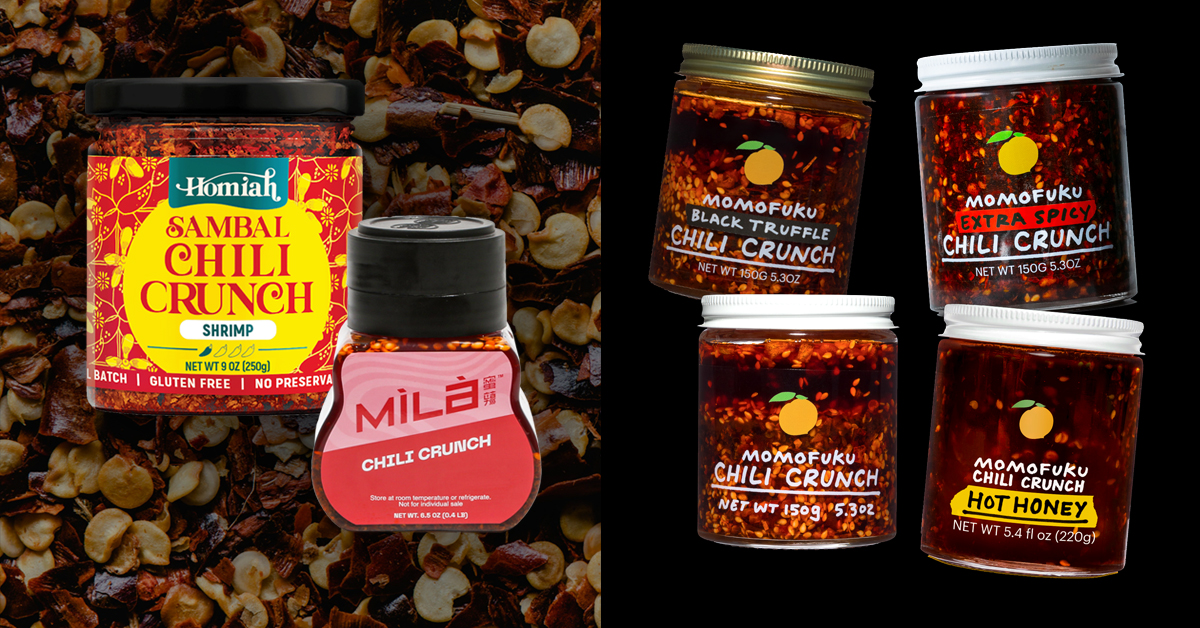Momofuku Fires Up Trademark Battle Over Chili Crunch

It appears David Chang’s Momofuku empire believes it has cornered the market on the term “chili crunch” and is claiming various other CPG brands making a chili crisp condiment infringed on its trademark. The newfound obsession with crunchy, chili-spiked garlic spreads has shown legs among American consumers with a number of brands from both Asian and Latin American culinary backgrounds getting into the game.
Yet, Momofuku is targeting food makers using the specific terms “chile crunch” and “chili crunch” with cease-and-desist letters. Malaysian food company Homiah and frozen Chinese street food brand MìLà are among brands that have received letters in the last month, according to a report in The Guardian.
“Chili Crunch has a history that long predates Momofuku’s product (which was first released in 2020) and is culturally common throughout a variety of cuisines from China to Korea to Malaysia, where I grew up,” Homiah founder Michelle Tew told Nosh in an email. “In fact, Homiah’s Sambal Chili Crunch is based on a family recipe, dating back at least five generations in the Nyonya (Straits Chinese) heritage of Penang, Malaysia.”
While Momofuku Goods doesn’t currently have a registered trademark for “chili crunch,” it began the filing process last week. Chang’s food company does own the trademark rights to “chile crunch” (mind the “e” which is the Spanish spelling of chili) which it acquired after a six-figure legal settlement last year with Denver-based Chile Colonial, LLC.

Tew believes the mark is “immensely weak” and “should never have been approved in the first place.” Nevertheless, this is not the first time Chang’s Momofuku brand has gone to the mattresses over a fairly ubiquitous culinary name. The company has tried to trademark its Ssam Sauce more than once with the U.S. Patent and Trademark Office without success.
At least five brands have received virtually identical cease-and-desist letters, Tew reported, and several have responded to Momofuku saying they intend to comply. In essence, the letters have succeeded in intimidating smaller brands due to a resource-power imbalance, Tew said.
Momofuku Goods has raised $29 million over two rounds and accrued $50 million in sales last year.
As a self-described fan and patron of the Momofuku restaurants and brand, Tew expressed disappointment that the company had engaged in behavior that is detrimental to small Asian American, Pacific Islander (AAPI) business owners specifically.
“It appears that Momofuku is rolling out a strategy to acquire and enforce descriptive trademarks for anticompetitive purposes,” Tew said. “Such conduct undermines fair competition, the future growth of Asian cuisine and culture, and Momofuku’s perceived commitment to those values with the broader community.”
The news has been quickly spreading among the AAPI CPG community with founders of other viral Asian brands like Fly By Jing and Omsom’s Vanessa Pham taking to social platforms to defend other chili crisp (or crunch) producers.
Momofuku did not respond to Nosh’s requests for comment by the time of this publication.

















